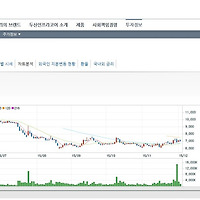2015/12/15 - [Akuku] - 미국 금리인상
언론과 전문가들, 그리고 잘 모르는 저까지도 예상했던 이번달의 역사적인 금리인상이 현실화 됐습니다.
금리인상을 통한 제로금리 시대의 마감, 그 영향은 차차 확인해보기로 하고 우선 연방공개시장위원회 FOMC의 2015년 12월 성명서 전문을 번역본과 원문으로 공유 드립니다.
1. FOMC 2015년 12월 성명서 번역본
지난 10월부터 FOMC가 수집한 정보들은 경제 활동이 점진적인(modearate) 수준으로 확장하고 있다는 점을 보여줬다. 최근 몇달간 가계 지출이 늘었고 기업 고정 투자도 안정적인 비율로 증가했다. 주택 부문도 훨씬 개선되긴 했지만 순수출은 크게 늘어나지 않았다.
일자리가 증가하고 실업률이 감소하는 등 노동 시장 지표가 개선됐고, 올해 초부터는 노동 자원을 충분히 활용했다는 점이 확인되고 있다. 물가 상승도 FOMC의 장기 목표인 2%보다 낮은 수준에서 계속되고 있다. 이는 에너지 가격과 비(非)에너지 수입 가격이 하락한 것이 일부 반영된 결과다.
시장을 기반으로 측정한 인플레이션 보상 지표은 낮게 남아있다. 조사에 기반한 장기 인플레이션 전망치도 목표치보다 낮다.
FOMC는 법에 명시된 권한에 따라 최대 고용과 물가 안정을 달성하기 위해 노력한다. 현재 상황에 비춰 볼 때 통화 정책을 점진적으로 조정하면서 경제 활동이 점진적인 수준으로 계속 늘어나고 노동 시장 지표도 계속 강화할 것으로 기대한다.
국내·외 경제 상황을 전반적으로 고려해 FOMC는 경제 활동 전망과 노동 시장 전망의 리스크가 균형을 이룬 것으로 본다. 일시적인 영향을 미치는 에너지 및 비에너지 수입 가격이 곧 소멸해 중기적으로는 인플레이션 비율이 2%를 넘을 것으로 예상한다. FOMC는 물가 개선 상황을 계속해서 면밀하게 모니터할 것이다.
FOMC는 올해 노동 시장에 상당한 개선이 있었다고 판단했다. 이를 바탕으로 물가가 중기적으로는 2%보다 더 상승할 것이라는 점을 확신한다. 경제 전망과 경제에 미칠 정책을 고려해 FOMC는 연방 기금 금리 범위를 0.25%~0.50%로 올리기로 결정했다.
통화 정책은 금리를 인상한 뒤에도 경기 조절적으로 남는다. 그럼으로써 노동 시장이 개선되도록 하고 물가 상승 비율이 목표치인 2%를 회복하도록 하는 것이다.
향후 연방 기금 금리의 목표 범위를 조정하는 시기와 폭을 결정하는데 있어 FOMC는 최대 고용과 인플레이션과 관련한 실제 수치와 예상치를 모두 고려할 것이다. 이를 평가할 때 노동 시장 상황과 인플레이션 압력, 인플레이션 예상치, 금융 및 국제 성장 상황을 측정한 수치 등 다양한 정보를 취합할 것이다.
현재는 인플레이션이 2%에 미치지 못하는 점에 비춰 FOMC는 인플레이션 목표치에 다가가는 과정을 주의깊게 모니터 할 것이다. FOMC는 경제 상황이 얼마 동안은 연방 기금 금리를 점진적으로 인상하는 방식으로 진행될 것이라고 예상한다. 다시 말해 연방 기금 금리는 장기적으로 달성된 수준보다 낮은 수준에서 당분간 머무를 것이다. 그러나 연방 기금 금리가 실제로 어떻게 달라질지는 향후 경제 전망에 달려 있다.
FOMC는 현재 보유한 에이전시 채권과 모기지 담보 증권의 원리금을 재투자하는 정책을 유지할 것이다. 만기된 재무부 채권은 입찰을 통해 연장할 것이다. 연방 기금 금리가 정상화될 때까지 이를 유지할 예정이다. 이 정책은 FOMC가 상당한 양의 장기 채권을 보유하게 해주고 재정 상태를 적정 수준으로 유지하는 데 도움을 줄 것이다.
FOMC의 통화 정책 결정에 찬성한 위원: 재닛 옐런 의장, 윌리엄 더들리 부의장, 라엘 브레이너드, 찰스 에번스, 스탠리 피셔, 제프리 래커, 데니스 록하트, 제롬 파월, 대니얼 타룰로, 존 윌리엄스.
2. FOMC 2015년 12월 성명서 원문
Information received since the Federal Open Market Committee met in October suggests that economic activity has been expanding at a moderate pace. Household spending and business fixed investment have been increasing at solid rates in recent months, and the housing sector has improved further; however, net exports have been soft. A range of recent labor market indicators, including ongoing job gains and declining unemployment, shows further improvement and confirms that underutilization of labor resources has diminished appreciably since early this year. Inflation has continued to run below the Committee‘s 2 percent longer-run objective, partly reflecting declines in energy prices and in prices of non-energy imports. Market-based measures of inflation compensation remain low; some survey-based measures of longer-term inflation expectations have edged down.
Consistent with its statutory mandate, the Committee seeks to foster maximum employment and price stability. The Committee currently expects that, with gradual adjustments in the stance of monetary policy, economic activity will continue to expand at a moderate pace and labor market indicators will continue to strengthen. Overall, taking into account domestic and international developments, the Committee sees the risks to the outlook for both economic activity and the labor market as balanced. Inflation is expected to rise to 2 percent over the medium term as the transitory effects of declines in energy and import prices dissipate and the labor market strengthens further. The Committee continues to monitor inflation developments closely.
The Committee judges that there has been considerable improvement in labor market conditions this year, and it is reasonably confident that inflation will rise, over the medium term, to its 2 percent objective. Given the economic outlook, and recognizing the time it takes for policy actions to affect future economic outcomes, the Committee decided to raise the target range for the federal funds rate to 1/4 to 1/2 percent. The stance of monetary policy remains accommodative after this increase, thereby supporting further improvement in labor market conditions and a return to 2 percent inflation.
In determining the timing and size of future adjustments to the target range for the federal funds rate, the Committee will assess realized and expected economic conditions relative to its objectives of maximum employment and 2 percent inflation. This assessment will take into account a wide range of information, including measures of labor market conditions, indicators of inflation pressures and inflation expectations, and readings on financial and international developments. In light of the current shortfall of inflation from 2 percent, the Committee will carefully monitor actual and expected progress toward its inflation goal. The Committee expects that economic conditions will evolve in a manner that will warrant only gradual increases in the federal funds rate; the federal funds rate is likely to remain, for some time, below levels that are expected to prevail in the longer run. However, the actual path of the federal funds rate will depend on the economic outlook as informed by incoming data.
The Committee is maintaining its existing policy of reinvesting principal payments from its holdings of agency debt and agency mortgage-backed securities in agency mortgage-backed securities and of rolling over maturing Treasury securities at auction, and it anticipates doing so until normalization of the level of the federal funds rate is well under way. This policy, by keeping the Committee’s holdings of longer-term securities at sizable levels, should help maintain accommodative financial conditions.
Voting for the FOMC monetary policy action were: Janet L. Yellen, Chair; William C. Dudley, Vice Chairman; Lael Brainard; Charles L. Evans; Stanley Fischer; Jeffrey M. Lacker; Dennis P. Lockhart; Jerome H. Powell; Daniel K. Tarullo; and John C. Williams.




